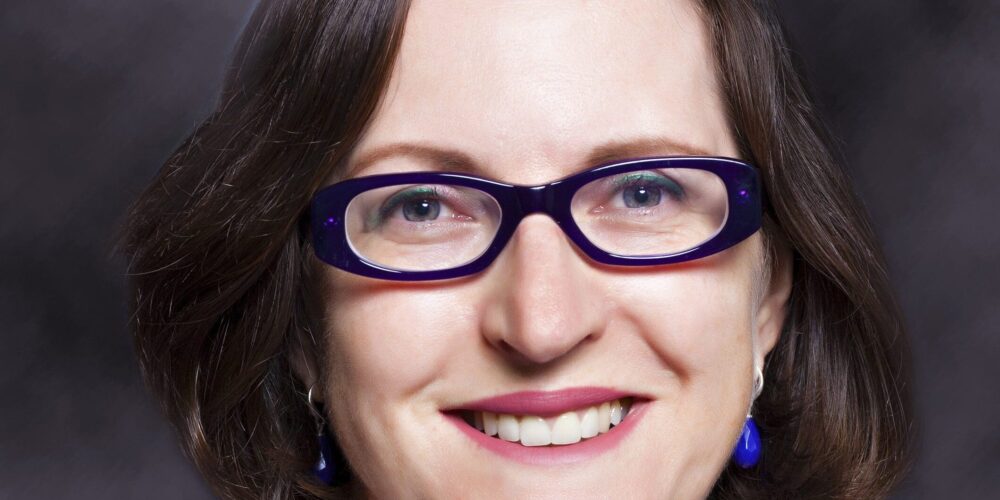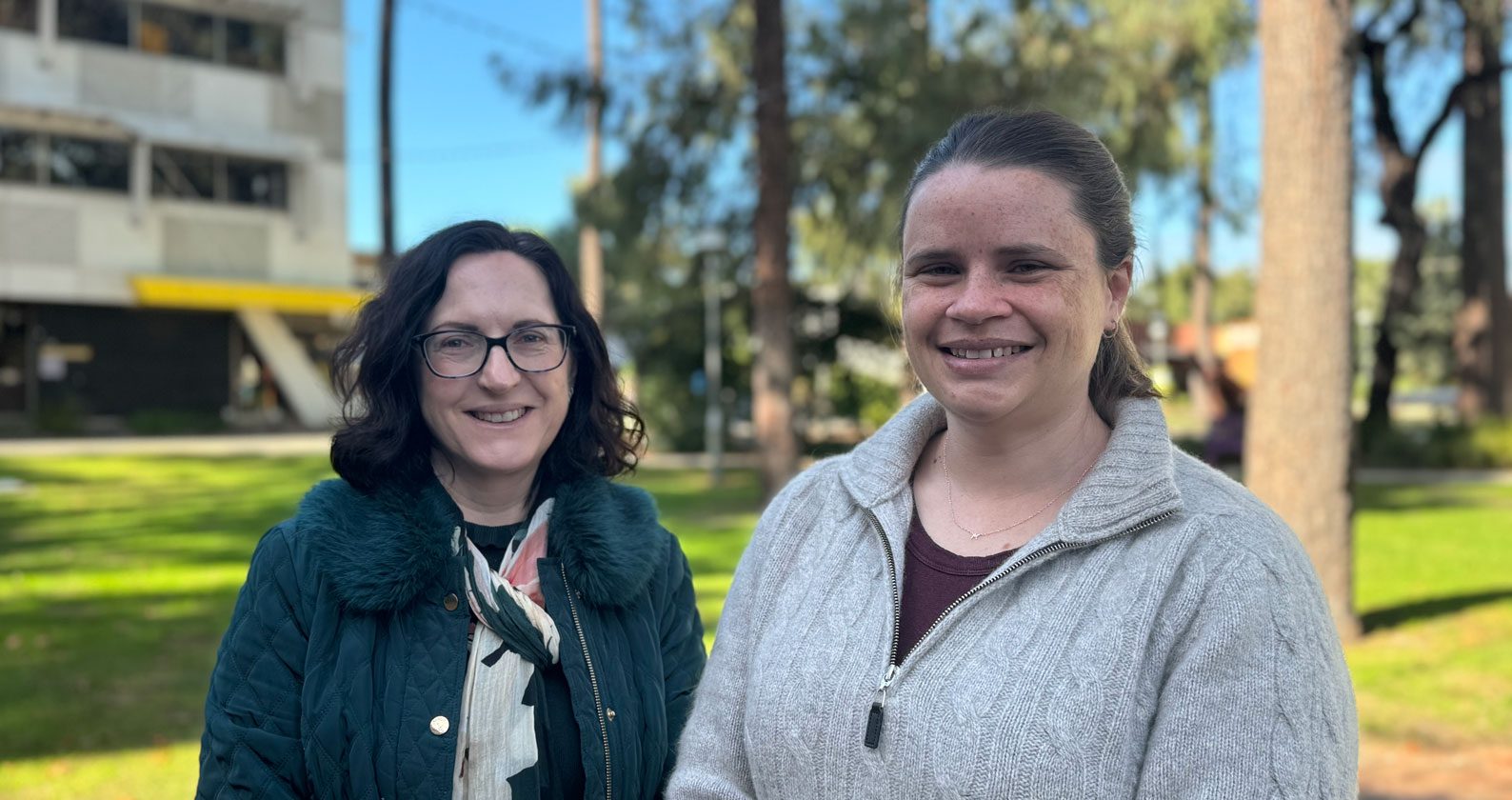Reading time: 7 minutes
Mary O’Halloran grew up around volunteer bushfire brigades in rural Western Australia. Now, she has just submitted her PhD on what’s burning them out. Drawing from lived experience and academic insight, she tackles critical questions around sustainability, wellbeing and societal change, after navigating COVID-era fieldwork and building bridges between geography, business and community resilience.
Mary recently completed a PhD in the School of Management and Marketing at Curtin, supervised by Curtin’s Professor Kirsten Holmes. Mary and Kirsten reflect on volunteer bush fire brigades in rural Western Australia, the challenge of completing qualitative research during COVID and their working relationship.
Mary:
I started off in international relations and geography for my undergraduate degree. I then did my Honours with Professor Amanda Davies, before transitioning into working as a research assistant for her and Kirsten. At the time, their work was on rural volunteering and eventually they asked what aspects I was interested in transferring into a PhD. Kirsten and Amanda were my initial supervisory team, but after Amanda moved to UWA about two years in to the PhD, Kirsten stepped up and led my supervision.
My project started off as very geography focused, but it transitioned into more of a multidisciplinary thesis between geography and business. It’s been interesting going from geography and international relations focused project to a multidisciplinary one. It’s shown me the importance of a variety of methodological approaches, and how they can steer your research in a completely different direction.
My project looked at rural volunteer firefighters in Western Australia, the sustainability of bushfire brigades, the effects of economic and environmental factors on their operations and social factors on their structure. I was also interested in the wellbeing of their members in relation to fatigue and stress. Within the thesis, I developed a theoretical framework that explains the establishment of volunteer bushfire brigades, the reasons why they remain a key element of WA’s fire suppression capacity, and the economic, environmental, social, and personal factors that can impact them. The framework was influenced by aspects of Institutional Theory and Oppenheimer’s three elements of volunteering.
Growing up, my dad was always part of the local volunteer fire brigade as a farmer.
I grew up in a rural area, and currently live in a rural area, so I’m quite passionate about rural issues. Rural communities are changing rapidly; farms are getting bigger, which is taking people off the land who would traditionally have been volunteering for their local fire brigade, which is having knock-on effects on the community. Rural communities are also aging at the same time, with families moving on and selling their farms, so the responsibility of volunteering is falling on a smaller and smaller group of people. I wanted to raise a bit more awareness about the social changes and economic and environmental issues they’re facing, how they’re reacting to that and in what ways they can be supported by the government.
The main challenge of the PhD was that my fieldwork was conducted during COVID times. There were four communities that I used for my fieldwork: two in the Wheatbelt, one in the Southwest and one in the Great Southern, all ranging between 200 to 400 kilometers from Perth.
I was based in the Great Southern, 250 kilometers Southeast of Perth, so before COVID, I did all my interviews face-to-face. When COVID hit, I was confined to my region. Farmers have very mobile jobs; they’re out all day in the middle of paddocks. While Zoom may have been an option if I was talking to people in Perth, I decided to use phone calls because that had the greatest chance of being able to speak to people in a way that wasn’t going to inconvenience them. It’s quite hard because it’s a completely different style of interview, and building up a rapport with the interviewees over the phone can be tricky. I was lucky that I already knew people from each community, and I could build a rapport through my shared experience of growing up in a farming family and the connections that afforded me.
Submitting my PhD was amazing, but I’ve had some real highlights along the way. I’ve had a Conversation article published with Amanda, and presented at a few conferences. I did a presentation to the Department of Communities and Department of Fire and Emergency Services, and they were really interested in my research. I was even lucky enough to travel to the UK to see how their volunteering sectors worked, where I spent a few months at the University of Birmingham with one of Kirsten’s contacts.
Meeting a lot of interesting people across different sectors and seeing that everyone’s so passionate about what they’re working on makes you more determined to have an output from your research rather than just producing a document that’s going to sit on a shelf.
I love talking about my research to anyone who’ll listen. The more I can get the word out that rural areas need support, need to be seen and heard, the better.
Kirsten’s way of working is really structured, and I respond very well to structure. Everything has a formula. I honestly could not have done this without the steadfast support that she’s given me along the way.
Kirsten:
Volunteering is one of my primary research areas. Mary was a fantastic research assistant when we were doing our earlier project on rural volunteering. It seemed very natural having already worked with Amanda and Mary on the project to then transition into studying that as a PhD.
It is such an important topic, rural firefighting. It’s a huge struggle and without it, rural areas would just go up in flames. I’m originally from the UK, and it was a bit of a shock for me, because at home we pay the people doing this. We wouldn’t be relying entirely on volunteers in the community to put themselves at significant risk to help each other. So that’s a really important part of Australian rural life.
As a supervisor, I’m fairly structured, which is probably the business school approach. That structure is around regular meetings and setting targets, particularly towards the end. I hope to be supportive and flexible as well. When teaching at an undergraduate level, it’s a very different relationship from when students are at school. Even more so for a PhD. It’s so important to have respect for each other and to get to know the other person, to understand the whole picture of what’s going on in their life. You’re going to be working together for a minimum of three years – that’s a long time.
I would agree on the main challenge with the research. That was tricky. It’s qualitative research, in-depth interviews, which are about the rapport you build with someone when you’re talking to them face-to-face. Another challenge too was not being out in the community where you can get a feel for how things are instead of just relying on what people tell you. But there was no other choice during COVID, and we worked very well through it.
One thing I’ve learned about Mary, which has been very interesting to me, is that she’s an insider in rural Australia and I’m not. I’m a complete outsider. I’ve learnt a huge amount about rural communities and a lot about bushfire brigades. Mary has an in-depth knowledge and real understanding that you only get from growing up in a place. Her knowledge has been key to how we’ve worked together in unpacking what’s going on in rural Australia.
About the researchers

Mary O’Halloran
Mary O’Halloran is a recently completed PhD candidate in the School of Management and Marketing at Curtin University. Her research interests centre around rural issues, with a focus on volunteering and emergency services. Mary is passionate about conducting research that can help rural communities retain their sustainability going forward.

Professor Kirsten Holmes
Kirsten Holmes is a Professor in the School of Management and Marketing at Curtin University with expertise in volunteering. She has served as the Chair of Volunteering WA’s research committee and Co-chair of Volunteering Australia’s National Volunteering Research Network. She is also the Director of Curtin’s Tourism Research Cluster.



